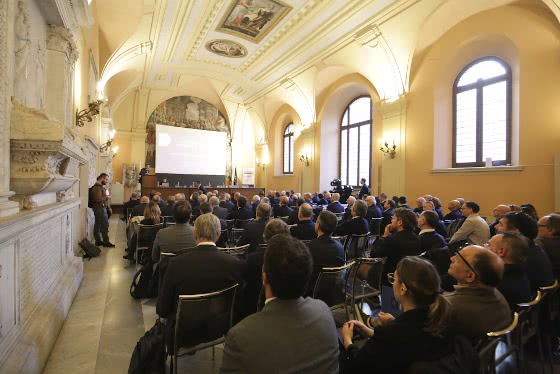
Pending the start of the process of reforming the rules on
ports, it is necessary in the meantime to put our hands on the
revision of the legislation that allows the Regions to tax the
port concession fees, to avoid competitive imbalances
between ports, the Fund for early retirement must be activated
of port workers, which has been awaited for four years and is crucial for
to encourage generational change, and it is essential to
balanced management of the issue of wages during the holiday period,
with the hope that all parties will act responsibly
to safeguard the industrial relations model and the role of the
National collective bargaining agreement.
These three interventions considered fundamental and urgent
by the association, were highlighted today by the National Union
Port Companies (Uniport) on the occasion of the public meeting
of the organization underway in Rome. In its report
In the introductory remarks, the president of Uniport, Pasquale Legora De Feo,
highlighted how 2025 has shown signs of "resilience"
on the maritime traffic side, despite the context
geopolitical still complex. At the same time, however, on the
of governance - he pointed out - there are several issues
unresolved issues, such as the failure to establish the fund for
the incentive for the retirement of port workers, and the new
obstacles, including the Campania regional tax on concessions
of the Port System Authority.
In addition, Legora recalled the need to rationalize the
new obligations deriving from the application of measures on the subject
and for monitoring entry into the EU
non-EU citizens, stressing that technology "must
simplify, not complicate" and that any
duplication between the various regulations. The
concern about the cost of energy, among the highest in
which weighs on the competitiveness of ports and transport
maritime sectors, energy-intensive sectors by definition.
At the heart of the report of the report of the President of
Uniport there is the draft reform of the port system and
the hypothesis of the establishment of Porti d'Italia Spa, on which Legora has
expressed a 'positive opinion on the objective of greater
national coordination", but also perplexity for
the absence so far of an institutional discussion with the operators
Cheap. The president of Uniport emphasized the
need for some precautions: to prevent the reform from
zero cost, subtracting resources from the System Authorities
Port law, reasons for increases in port fees and taxes; ensure that
the new subject does not introduce an additional level of complexity,
but operates in harmony with the existing system; strengthen the
clarity of roles between MIT and ART, to prevent overlaps that
risk slowing down the competitiveness of the system. On
dredging, Legora then underlined how the text in question
"does not introduce a real simplification",
stressing the urgency of overcoming the regulatory equivalence that
classifies dredging materials as waste.
Broadening his gaze to the European Union, Legora then reiterated
the request for a revision of the ETS which constitutes - has
specified - "A European surcharge that penalizes ports
EU compared to non-EU transport and discourages maritime transport
compared to the road. The latest signs of
rethinking revealed by Brussels".
